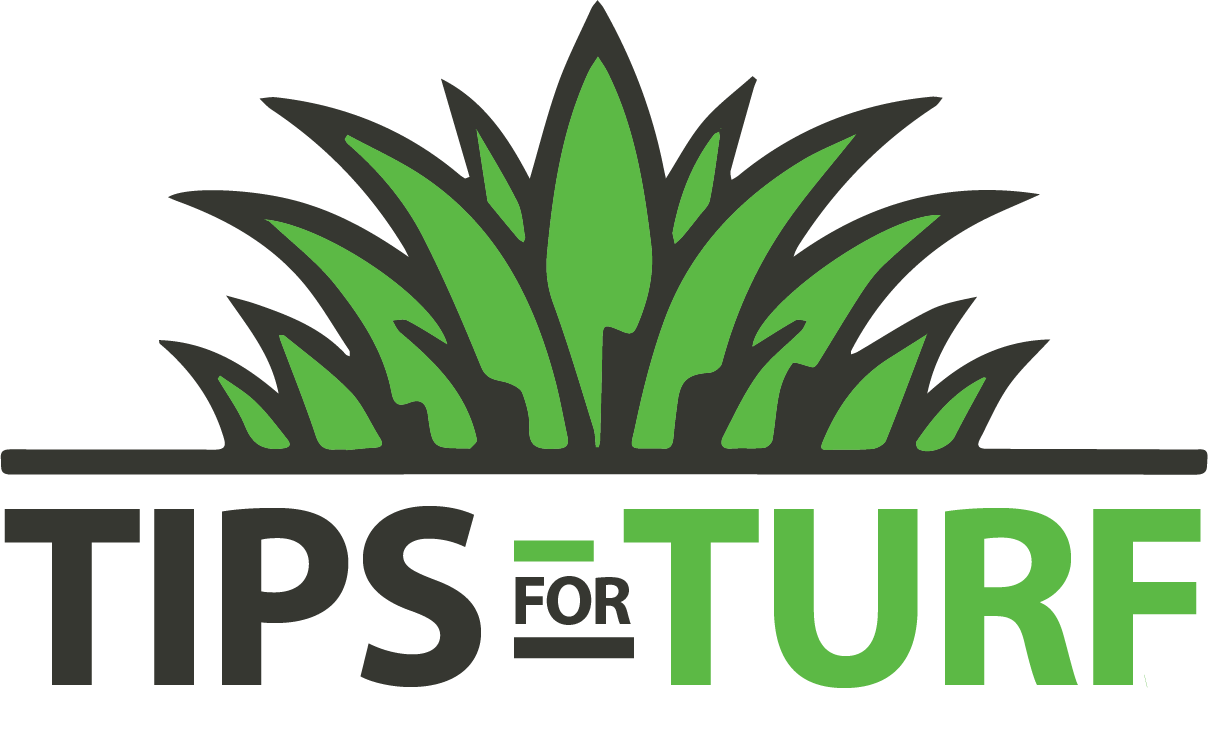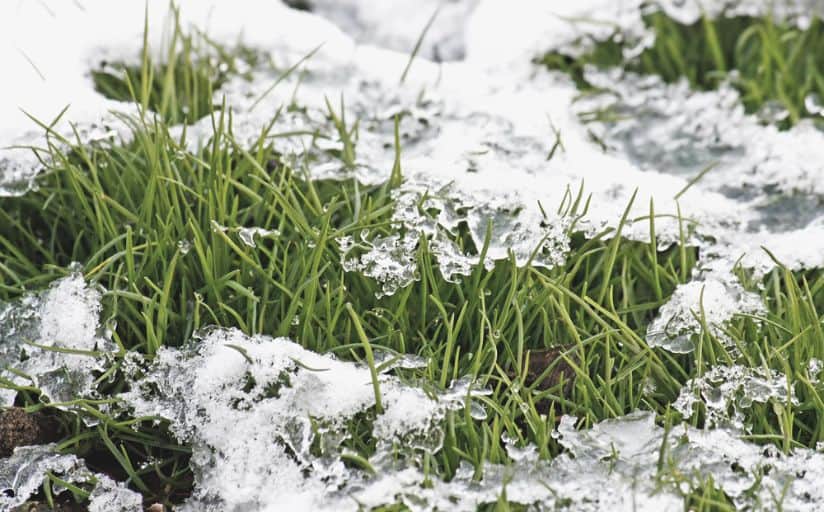Winter can be tough on your lawn, especially when snow and ice cover your yard for months. Ice melter products can help keep driveways and walkways safe, but they sometimes come with a price: damage to your grass and concrete. Is ice melt made from calcium chloride safe for your lawn and property or should you use an alternate way to melt ice?
(If you make a purchase using the links in this post, we may earn a commission.)
Will Calcium Chloride Kill Grass?
Is calcium chloride safe for grass? Calcium chloride is less harmful to grass compared to many other ice melt products, but it’s not completely risk-free. When used in moderation, it doesn’t kill grass outright.
However, will ice melt kill grass if overapplied? Problems arise if too many calcium chloride pellets accumulate in one area, as the salt can pull moisture from the soil and cause dehydration. This can lead to yellow or brown patches on your lawn, especially near walkways or driveways where the product is heavily applied.
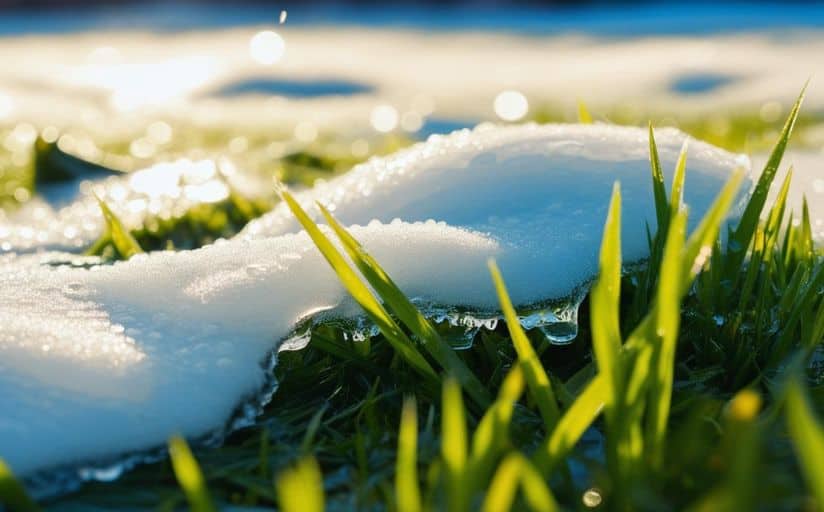
The good news? You can minimize damage by rinsing off nearby grass after the ice has melted. An important aspect of winter lawn care is watering your lawn during a winter thaw (but don’t do this when freezing temperatures are expected), and that can help dilute the salt and keep your grass healthier. Being mindful of how much product you use and where you apply it can go a long way in protecting your lawn.
Is Calcium Chloride Safe for Pets?
Calcium chloride is generally considered safer for pets compared to some other ice melter products. While it is less harsh than alternatives like sodium chloride, excessive exposure can cause irritation to your pets’ paws or digestive upset if ingested.
To protect your furry friends, use calcium chloride ice melt sparingly and opt for formulations specifically labeled as pet-safe. Additionally, after the ice has melted, thoroughly rinse walkways and driveways to remove any residual product, minimizing the chances of your pets coming into contact with it. By taking these precautions, you can effectively manage icy surfaces while ensuring a safe environment for your pets during the winter months.
BUY – Pet’s Pals Pet Safe Snow & Ice Melt
Is Calcium Chloride Safe for Concrete?
Calcium chloride is less harmful to concrete than harsher ice melts like rock salt, as it requires smaller amounts to be effective. However, if your concrete is unsealed, older, or already cracked, the freeze-thaw cycles caused by moisture can still damage it.
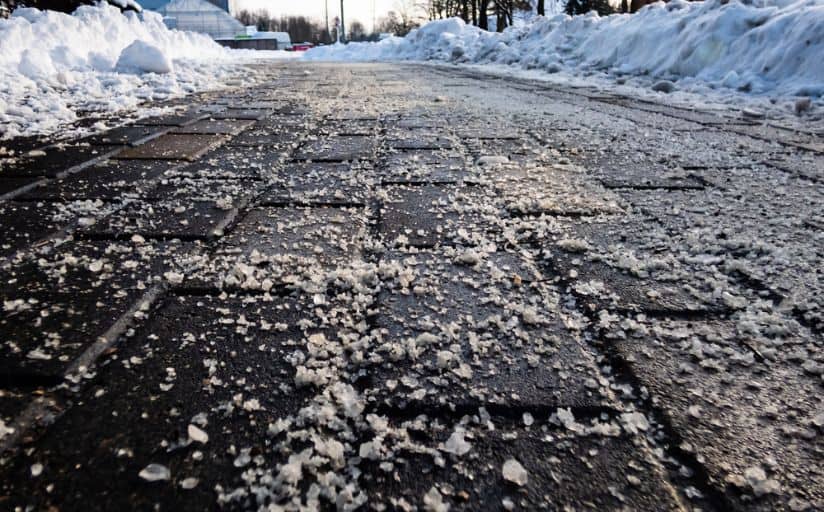
To protect your concrete, ensure it’s properly sealed before winter to prevent moisture from seeping in. If calcium chloride is used on your walkways, sweep or rinse it off once the ice melts to avoid buildup. With these precautions, you can keep your hardscapes intact while effectively managing ice.
BUY – AquaDoc Ice Melt Safe for Concrete
Where Do You Buy Calcium Chloride?
Calcium chloride is widely available and easy to find. You can pick it up at most hardware stores, home improvement retailers, or garden centers. Many brands sell it in pellet or flake form, and you can often find it alongside other ice melter products.
If you’re shopping online, retailers like Amazon or specialized lawn care websites also offer calcium chloride ice melt in various sizes. When purchasing, look for phrases on the product such as the following:
- Safe for lawns and gardens
- Low environmental impact
- Pet safe
To protect your lawn, choose products where the manufacturer explicitly says that the ice melt is safe for grass.
BUY – Eco Living Solutions Pet and Lawn Safe Snow & Ice Melt
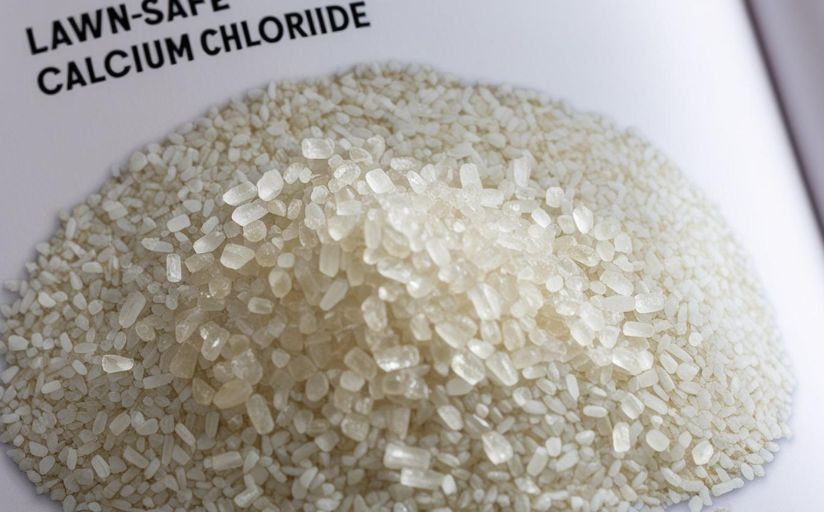
Is Calcium Chloride Safe for Lawns?
Calcium chloride can be a safe ice melt solution for your lawn and concrete, as long as you use it correctly. While it’s less damaging than many other de-icing products, it’s important to apply it sparingly and rinse away any excess to protect your grass and hardscapes. By taking a few extra precautions, you can keep your yard safe from winter hazards without compromising its health.
